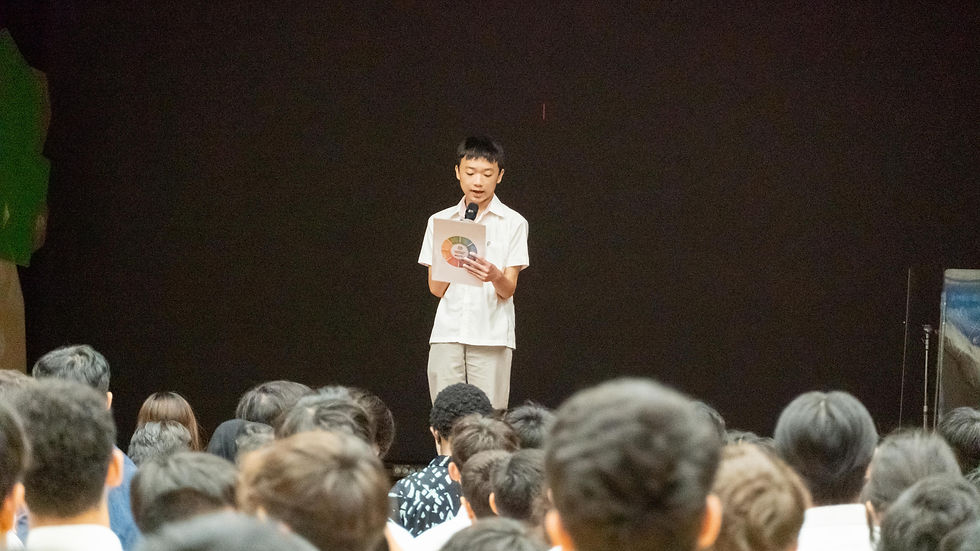Flag Raising Ceremony Students’ Sharing 2025-8-28
- Sep 12, 2025
- 2 min read
Justice, a student from Form 4 Cassia, highlights that critical thinking is vital for IB learners, using Xinjiang as an example since it is a subject often discussed in global media. By researching different sources, from Western media to Chinese official documents, he learned to evaluate information critically rather than accept it blindly. This skill is essential for forming well-reasoned arguments and understanding complex, multifaceted global issues based on evidence, not bias.

Written by Justice Wong (Form 4)
Good morning, Principal, Assistant Principals, teachers, and our fellow students. I’m Justice Wong from F.4 Cassia.
Today, I would like to share my views on why critical thinking skills are very important to us as IB learners, with Xinjiang as an example since it is a subject often discussed in the global media.
To start with, I would like to give you a brief background of Xinjiang. Xinjiang, officially the Xinjiang Uyghur Autonomous Region, is a province located in the northwest of China. It is a diverse region with a population of over 25 million people made up of various ethnic groups including the Uyghur, Han Chinese, Kazakhs, Tajiks, and many others. The largest ethnic group in Xinjiang is the Uyghur who are predominantly Muslim and speak a Turkic language. It is also home to the ancient Silk Road cities of Kashgar and Turpan.
Throughout the years, Xinjiang has been the subject of international discourse. Some reports and governments have made claims regarding measures affecting Uyghurs and other Muslim minorities, including those related to labor and cultural practices.
To know more about this issue, I think it is important for us to put in effort in doing more research and evaluating the sources. Before writing my speech, I spent time reading some articles and watching documentaries produced by some Western media. At the same time, I also read different official documents published by the Chinese government, watched CGTN’s documentary and also vlogs from people living in China.
I discovered that their perspectives were rather different and we could not blindly believe in either side. We have to be critical and judgmental. As IB learner, we have to demonstrate different ATL skills, namely thinking skills, research skills, communication skills, etc. Developing critical thinking skills allows us to engage deeply with complex and interdisciplinary concepts. It empowers us to deconstruct TOK questions, evaluate sources and analyze global issues from multiple perspectives.
Based on what we read, it is important for us to formulate well-reasoned arguments with a sound ground. As we learn in I&S since F1, we have to do OPVL analysis when we analyse the sources we look to understand the multifaceted reality of an issue.
With the experience of preparing this speech, I learnt that critical thinking skills allow us to navigate a world of conflicting information and to build understanding based on evidence, not bias. Let us all strive to be IB learners who don't just learn, but who truly understand. Thank you.









